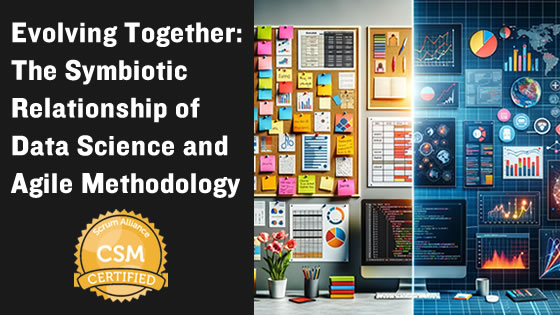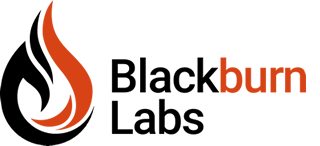Evolving Together: The Symbiotic Relationship of Data Science and Agile Methodology
A few years ago, we explored the promising union of Data Science and Scrum methodology. After years of practicing and refining these processes, it's time to revisit and delve deeper into how this combination has evolved and continues to thrive.
The Iterative Dance: Data Science and Agile:
Data Science is inherently iterative, with tasks such as training a baseline model or evaluating a dataset's schema. Agile methodologies, including Scrum, Kanban, and Extreme Programming (XP), focus on iterative progress towards larger milestones, fostering communication and rapid product delivery.

Adapting to Change:
Agile's flexibility allows teams to pivot and refocus efforts efficiently when data issues emerge unexpectedly. This adaptability has proven invaluable in navigating the dynamic landscape of data-driven projects.
Agile Methodologies in Data Science:
- Scrum: Scrum offers a simple framework to address complex project issues while ensuring high-quality end products.
- Kanban: Kanban manages and controls the flow of features, focusing on work in progress (WIP) limits.
- Extreme Programming (XP): XP emphasizes communication, feedback, and simplicity.

OSEMN Framework in Data Science:
The OSEMN framework outlines the steps in a data science project: Obtaining, Scrubbing, Exploring, Modeling, and Interpreting data. Agile methodologies align well with this framework, providing structure and adaptability.
Prioritization and Planning:
Agile methodologies enable data scientists to prioritize models and data according to project goals, facilitating communication with non-technical stakeholders.
Research vs. Development:
Data science projects often require constant experimentation and research, making the iterative nature of Agile methodologies a perfect fit.
Pros and Cons of Agile in Data Science:
Pros:
- Planning and Prioritization: Agile methodologies, such as Scrum, facilitate planning and prioritization at the start of each sprint, aligning the data team with organizational needs.
- Clearly Defined Tasks: Defining tasks with clear deliverables and timelines helps maintain focus and avoid unnecessary diversions.
- Retrospectives and Demos: These sessions at the end of each sprint promote continuous learning and accountability within the team.
Cons:
- Ill-Defined Efforts: Data science problems can be more ill-defined compared to engineering problems, making estimation harder.
- Rapid Changes in Scope: The scope and requirements from stakeholders may change rapidly, which can be disruptive to the sprint.
- Expectations of Deliverables: There may be expectations that data science sprints should have deliverables similar to engineering sprints, which may not always be feasible.
- Overemphasis on Short-Term Goals: Being too disciplined in Scrum may lead to an overemphasis on short-term goals, potentially overlooking opportunities for innovation.

Conclusion: A Symbiotic Future:
Reflecting on the journey, it's evident that Data Science and Agile methodology complement each other exceptionally well. By understanding the pros and cons, teams can make informed adjustments to their processes. The iterative, adaptable, and evidence-focused nature of both fields creates a synergy that drives projects towards success. As we continue to evolve and learn, this symbiotic relationship promises to yield even more fruitful outcomes. If you want to get started on a results-focused data project, reach out to Blackburn Labs, our lead Data Scientist is also a certified scrum master!
